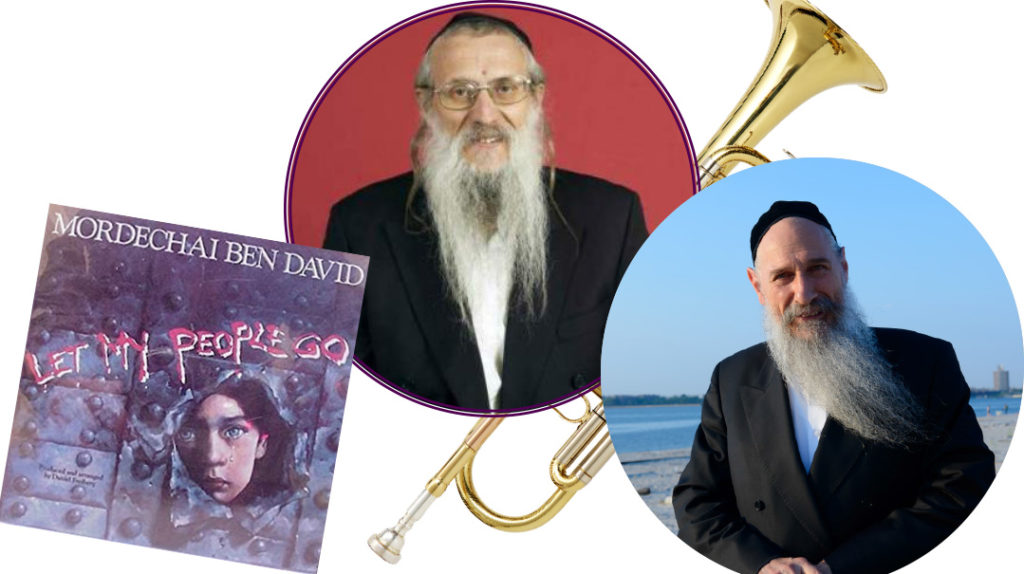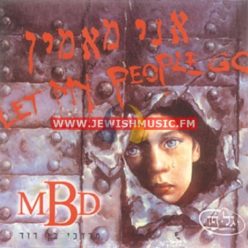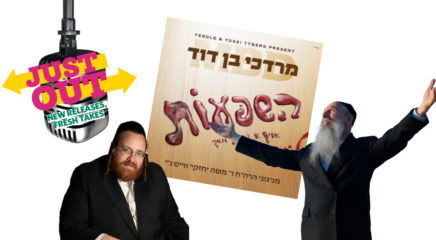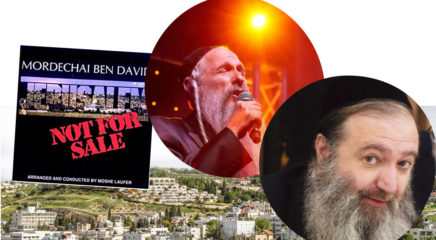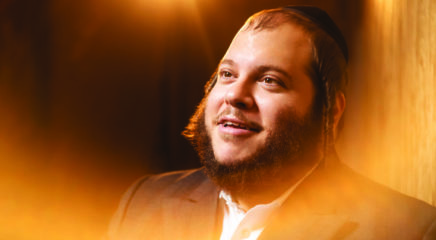The song elicits chills even today, more than 30 years after the fall of the Iron Curtain
Let My People Go
Composed by: Mordechai Ben David
Album: Let My People Go
Year: 1985
The Song
Mordechai Ben David stepped into political territory to lend his voice to worldwide demonstrations on behalf of Jews imprisoned in the Soviet Union for the crime of applying to leave for Eretz Yisrael. It’s a melody packed with energy, rhythm, and lyrics full of protest and hope. Some of the Prisoners of Zion are mentioned by name — Natan (Anatoly) Sharansky and Ida Nudel (who would be freed in 1986 and 1987 respectively), and Yosef Mendelevitch, who had already been released in 1981. The chorus, “Thousands shouting no, let my people go, enough of your bluff and your hurting,” is repeated almost like a chant, a protest slogan, fading into silence at the end of the song. The song elicits chills even today, more than 30 years after the fall of the Iron Curtain.
The Backstory
Rabbi Yosef Mendelovitch
Where I was held, in the KGB’s special jail facilities, no songs ever reached us. I barely knew which day it was. The first I knew of the protest movement outside Russia was when Anatoly Sharansky was brought to the same prison as me. I had already been in jail for seven years when I heard a rumor that Anatoly had arrived there. He was arrested in 1977 and I met him in jail in ’78.
How could I speak to a fellow inmate in a maximum-security KGB prison? Well, the toilet pipes were connected to each other, so I spoke to him through the pipes. The first question I asked Anatoly was how he had gotten involved with the refusenik activities and come to be arrested. He replied that it was because of me and my friends. When he had seen our determination to get out to Israel and how we had lost our freedom because of it, he had decided that he had no right to peacefully continue studying for his doctorate — he too had to fight for Jewish freedom. And so he had landed in jail.
Next, I asked if there was any action taking place to try and secure our freedom. His answer surprised me. “Of course! There are organizations and protests all over the world. People are fighting to get Russian Jews released.”
I was surprised, but I had already understood that alone, we could not achieve our goal. We needed the unity of Klal Yisrael to create the momentum, to bring nachat to the One Above and push for our release. There is no greater koach than our people joining together to help each other, and that is, in my opinion, what eventually pushed the Iron Curtain aside.
A few years later, I was free, standing on a rooftop during a concert in the Old City of Jerusalem, and it was then that I first heard Mordechai sing “Let My People Go.” “Yossi survived, he’s free now...” he sang, and then he turned to me, “It is about you, Yosef!”
Yes, we were free from Russian slavery and imprisonment, and not only to go to a democracy, but to learn Torah and be Jews. My own grandfather was the meshamesh of the Rogatchover Gaon, but you have to understand that with no Torah education, millions were lost. My parents were Communists who kept nothing, besides some spoken Yiddish. I could have lived like a goy, I could have married a goy, but miracles saved me from oblivion.
“Let My People Go” wasn’t even written when I was in jail, but I did have other songs with me. I knew “Am Yisrael Chai” from the Jewish underground, and I sang it the entire time, to show my defiance. The other Jewish songs I knew, ironically, came from my mother. My mother, the good Communist citizen who kept no Yiddishkeit, still sang to me the Yiddish songs of her childhood in Dvinsk. So I knew “Mein Shtetele Belz,” and “A Yiddishe Mamme, Nnisht Du Kan Besser oif Der Velt,” “Rozhinkes mit Mandlen,” and some partisan songs, and I knew they were Jewish, so I sang them constantly. There was no heating in my cell, but for 11 years, I sang, “Offen pripetchik brent a fierel... un der rebbe lernt mit kleiner kinderlach dem alef-beis” — and that was the fire that kept me warm in my heart.
From the Composer
Mordechai Ben David
In 1984, Natan Sharansky’s wife, Avital, together with PR executive Benny Gal, asked me to write a song for Natan, who was still imprisoned in the Soviet gulag. It was just before I was about to release a new album, and I decided to write a song honoring these heroes who were fighting for their Jewish identity in Communist Russia. I composed the title track of the album, “Hold On,” a tribute to Natan, with the hope that the song would somehow encourage him and the other refuseniks to continue to hold on to their beliefs and their unwavering battle for freedom.
A year later, I composed “Let My People Go,” also dedicated to the refuseniks in the Soviet Union. Like every other Jew, I cared deeply about our brethren imprisoned in Communist Russia. I’m emotional by nature, and I guess that’s reflected in my music.”
(Originally featured in Mishpacha, Issue 854)

